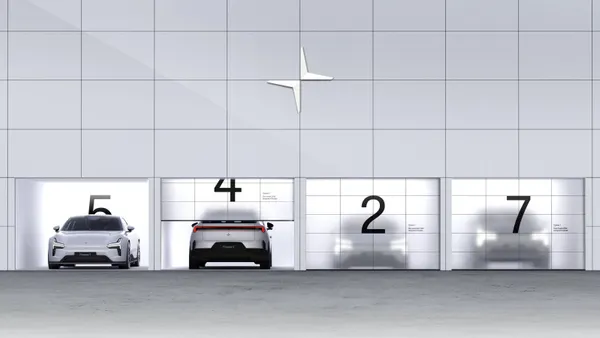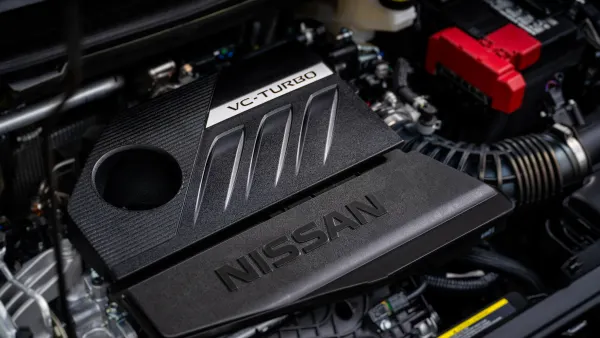Editor's note: This story is part of the WardsAuto digital archive, which may include content that was first published in print, or in different web layouts.
Clifton Lambreth feared he’d be axed as a Ford Motor Co. manager after he sent CEO Alan Mulally a copy of his book, an insider’s account of what went wrong at the ailing auto maker.
“I told my wife, ‘The book may save Ford, but it may cost me my job,’” says Lambreth, a customer-service division zone manager in Memphis, TN.
Instead, he got a call from Mulally, asking him to lunch, where they spent two hours discussing “Ford and the American Dream” and its candid contents.
“He took notes and thanked me for my courage,” Lambreth says of Mulally, a Boeing Co. executive who was hired in January to reverse the losses Ford has suffered.
Mulally and Lambreth met in the dining room of company founder Henry Ford’s historic Fairlane estate in Dearborn, MI.
It was life imitating art, because in Lambreth’s book, a fictionalized tale wrapped in real-life events, two lunch meetings occur at Fairlane with the ghost of Henry Ford, who offers back-to-basics advice to his guests.
One of them is a character called Christopher Hope “who is really me,” says Lambreth. The other lunch-with-the-phantom participant is Mulally.
The 192-page book is unprecedented. Customarily, published works of that nature are by people who have left a company, often in a disgruntled mood.
Lambreth, a 23-year veteran of Ford, wrote the book partly out of frustration. “I’ve gone crazy watching people unintentionally destroying the company.”
But he says he also wrote it because he loves the auto maker and wants to share his ideas of what went wrong and how to fix it.
“It’s the first time someone pulled together what happened,” Lambreth, 47, says of events leading to Ford’s lost sales, deteriorating market share, factory closings and retrenchment of dealership ranks.
Ford commissions anniversary books and such, “but none of them tell how we lost $12.6 billion,” he says. “You can only do that so many times before you’re out of business.”
Since his book came out this summer, he has received hundreds of correspondences of commendation from colleagues, retirees and dealers. A book tour is in the works.
“There have been some ankle biters, and I expected that,” he says. “Critics largely have been people who didn’t read the book. Some people claim I’m trying to sink the ship. But, heck, I’m on the ship, too!”
Lambreth contends it wasn’t one or two isolated incidents that got Ford in trouble. Rather it was a series of stumbles and a lack of leadership over two decades.
“Until Alan Mulally arrived, Ford hasn’t had a CEO who was a leader in 20 years,” he says. “The last one was Don Petersen (who retired in 1990). We’ve had managers and caretakers, but not leaders.”
Lambreth is particularly tough on two former CEOs of the 1980s and 1990s, Alex Trotman and Jac Nasser.
In earlier years, Lambreth and Trotman were fellow company recruiters at college campuses. Trotman was self-conscious about lacking a college degree, a feeling that accompanied him to the top of Ford, Lambreth says.
“As a result, Trotman hired people based on their perceived high potential, not their previous performance,” Lambreth says. “They came to Ford, got their MBAs and left.”
He raps Nasser for a clumsy execution of a well-intended diversity program designed to give Ford management a deeper multi-cultural makeup.
“Diversity is good for lots of reasons, including giving the company better insights into different markets,” Lambreth says. “But you don’t hire and promote people based on race, gender, ethnicity or even sexual orientation. It’s divisive. It caused a lot of resentment at Ford.”
In a chapter entitled “Engineered to Fail,” the book takes aim at autonomous project managers who are loathe to share ideas that can lead to cost-efficient commonalities.
“We have 54 steering wheels; Toyota has five,” Lambreth says. “We have 97 different sets of brake pads; Toyota has five. “We have great products in Europe, but they can’t come here because they weren’t designed to meet U.S. emissions standards.
“It’s as if everyone is doing their own thing,” he says. “If you say, ‘Why can’t we do it differently,’ the reaction is ‘They won’t go along with it,’ or ‘The unions won’t go for it.’”
He says naysayers “can think of 100 reasons to turn down an idea that has 1,000 good reasons for being implemented.”
Mulally has vowed to stop the territorialism. He says that when he arrived at Ford, he encountered, despite its size, the “smallest large company” he has ever seen.
Lambreth’s hero is Henry Ford, so it is no surprise the auto pioneer makes it into the book in spirit, literally and figuratively.
“We’ve got to think more like Henry Ford,” says Lambreth. “He was thrifty on the business end, and on the consumer end he created affordable transportation. We’ve got to get back to that.”









